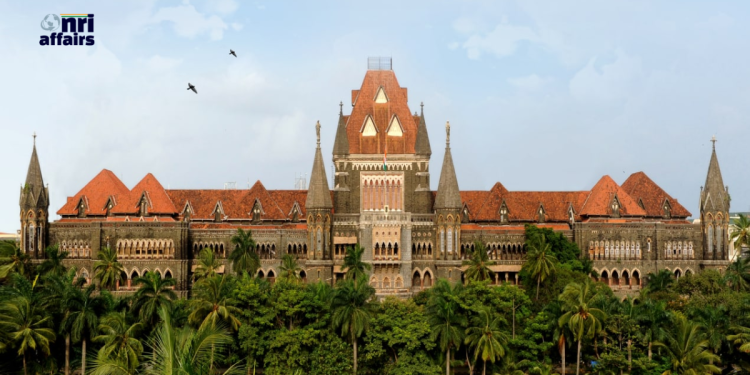In a landmark decision, the Bombay High Court recently declared the arrest of a businessman, which took place four years ago, as illegal. The Court ordered his immediate release, drawing attention to procedural lapses in the arrest process and lack of adherence to statutory norms. This case has profound implications for future arrests and the legal framework governing arrests under criminal and procedural law in India. In this article, we will provide a comprehensive breakdown of the case, the arguments presented by both sides, and the legal principles that guided the court’s decision.
The case revolves around a businessman who was arrested in connection with an alleged cheating case involving a substantial financial transaction. The businessman was taken into custody by the Mumbai police in 2019 after an FIR (First Information Report) was lodged against him, accusing him of duping a company into a fraudulent business deal. Despite several petitions filed in court to seek bail, the businessman remained incarcerated for years without a clear resolution.
Key Allegations
- Fraudulent Transaction: The businessman was accused of engaging in fraudulent activities that led to significant financial losses for the complainant.
- Criminal Breach of Trust: Alongside charges of cheating under Section 420 of the Indian Penal Code, allegations of criminal breach of trust were also leveled.
- Delayed Judicial Process: Despite multiple pleas for a faster resolution, the businessman was left in a state of prolonged incarceration, which raised concerns about delays in the justice system.
Legal Arguments and Procedural Lapses
The primary argument brought forth by the defense was that the arrest was carried out in violation of established legal procedures. The defense argued that due process, as outlined in the Code of Criminal Procedure (CrPC), was not followed, making the arrest illegal and unconstitutional.
Violation of Sections in CrPC
Under the Code of Criminal Procedure, specific sections govern arrests:
- Section 41(1) of CrPC mandates that arrests must be based on credible and tangible evidence.
- Section 50 specifies that the arrested person should be informed of the grounds for their arrest immediately.
- Section 57 states that no person can be detained for more than 24 hours without being presented before a magistrate.
In this case, it was argued that these statutory requirements were not adhered to, leading to an unlawful arrest. The failure to present the businessman before a magistrate within the stipulated time period, and the absence of clear grounds for arrest, was central to the defense’s argument.
Court’s Observations
The Bombay High Court took a critical view of the police’s actions. The Court emphasized that:
- Non-compliance with CrPC: The police failed to provide valid reasons for the arrest and did not follow the procedural safeguards that protect individuals from arbitrary detention.
- Lack of Evidence: The prosecution failed to present credible evidence to substantiate the arrest.
- Personal Liberty: The Court reiterated that personal liberty is a fundamental right protected under Article 21 of the Indian Constitution, which cannot be infringed upon without proper legal justification.
The Court’s Judgment
Immediate Release Ordered
After evaluating the facts and legal submissions, the Bombay High Court ruled in favor of the businessman, declaring his arrest illegal. The Court ordered his immediate release, stating that the extended detention violated his fundamental rights. The judgment serves as a stern reminder to law enforcement agencies about the importance of adhering to procedural norms while making arrests.
Implications for Future Cases
The judgment is significant for several reasons:
- Upholding the Rule of Law: The decision reinforces the principle that the rule of law must prevail and that arrests must strictly follow the due process of law.
- Protection of Personal Liberty: The ruling acts as a safeguard for individuals, ensuring that they are not subject to arbitrary arrests and detentions.
- Police Accountability: The case has set a precedent for holding law enforcement agencies accountable for procedural lapses, potentially leading to more stringent checks on police powers.
Legal Precedents and Future Impact
Reference to Previous Cases
The Bombay High Court’s decision aligns with several key precedents from the Supreme Court of India:
- D.K. Basu v. State of West Bengal: This landmark case laid down detailed guidelines on arrest procedures, which have been reaffirmed by this judgment.
- Joginder Kumar v. State of UP: The Court emphasized that arrests should not be made in a routine manner, and reasons for arrest should be clearly stated.
- Arnesh Kumar v. State of Bihar: The Supreme Court ruled that arrests should be an exception, not the rule, and only be made when absolutely necessary.
These cases highlight the judiciary’s emphasis on protecting individuals from arbitrary state actions, and the Bombay High Court’s recent ruling reinforces these principles.
Recommendations for Law Enforcement
To prevent such situations from occurring in the future, law enforcement agencies must adhere to the following recommendations:
- Strict Adherence to CrPC Provisions: Police must ensure compliance with all statutory procedures, especially Sections 41, 50, and 57 of the CrPC.
- Training Programs for Officers: Regular training and workshops should be conducted to familiarize police officers with legal requirements concerning arrests and detentions.
- Accountability Measures: Mechanisms should be put in place to hold officers accountable for procedural violations.
The Bombay High Court’s decision to declare the arrest of the businessman illegal sets a critical precedent for upholding constitutional rights and ensuring that law enforcement agencies operate within the bounds of the law. By reasserting the importance of procedural safeguards, the Court has emphasized that no one, regardless of the severity of allegations, should be deprived of their liberty without due process. This judgment will likely have far-reaching consequences in ensuring greater accountability within the police force and preserving the fundamental rights of individuals.











